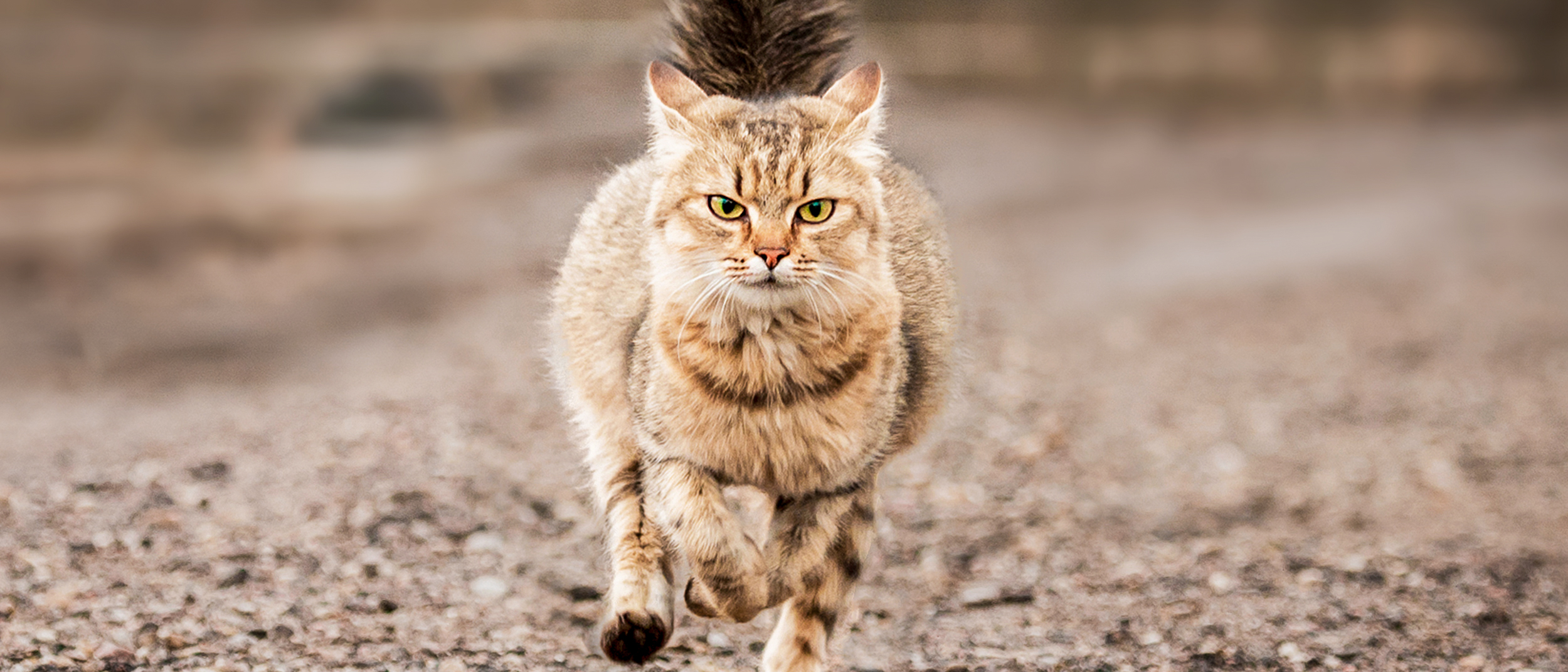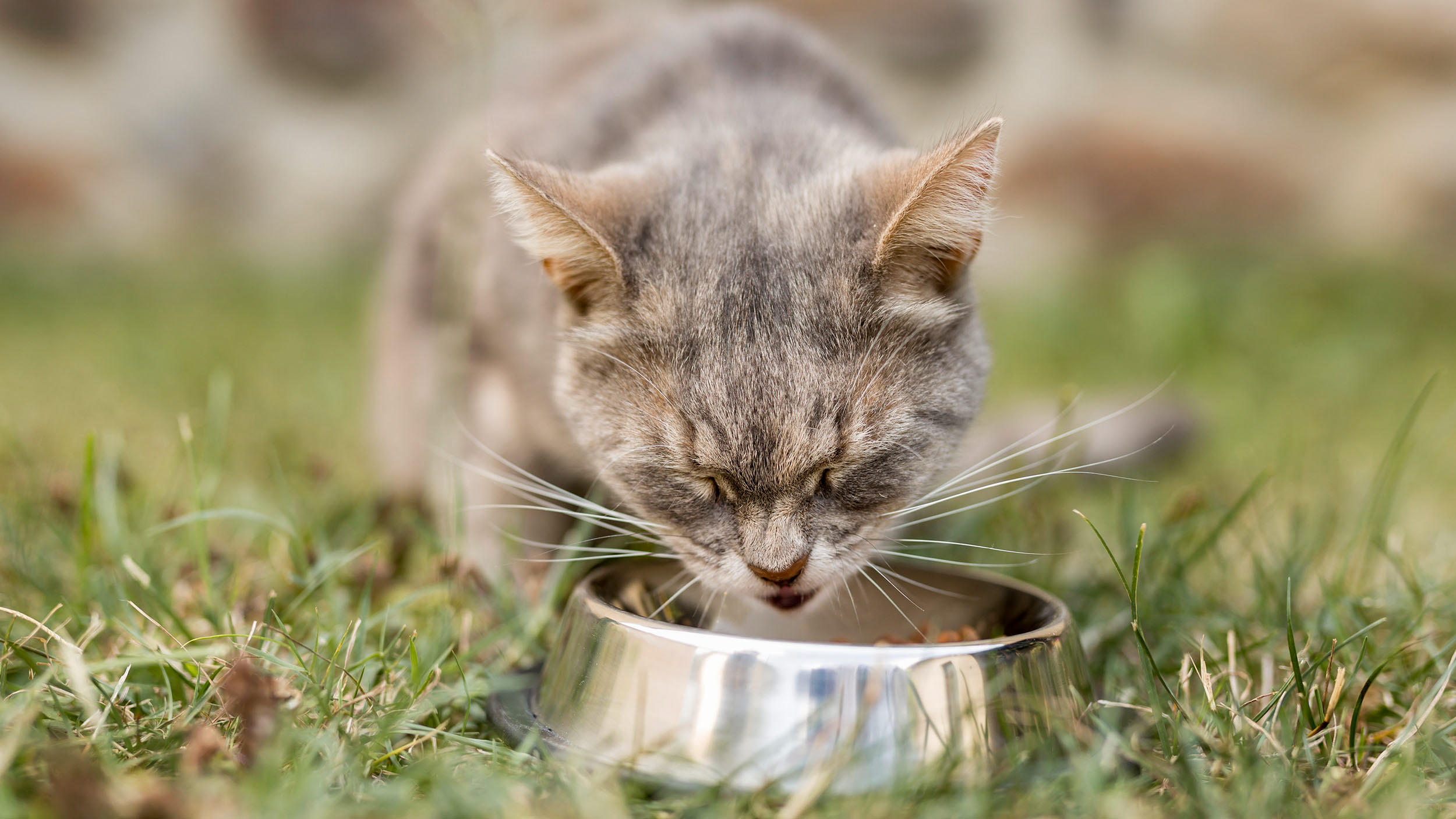How to help your kitten stay in shape
Excess weight gain can be a significant problem for kittens, as it can lead to long-term health issues. Understand more about what they need from their diet, and how you can help them stay in shape.

During the first year of their life, your kitten is growing rapidly and gaining weight as their skeleton and muscles develop. However, it’s essential they put on the right amount of weight, as obesity in cats can cause long-lasting health problems.
What do kittens need from their diet?
A kitten’s nutritional requirements are different from an adult cat, as they require more energy to fuel their growing body. Initially, your kitten will get everything it needs from its mother’s milk, and you’ll see it put on weight steadily. When you begin to wean your kitten onto solid food, you should choose a food which provides it with the right mix of essential nutrients to stay healthy.
Texture and smell are more important to a kitten than flavour, as it has only 500 taste buds compared to the 9,000 humans have, so select a food which is of the right shape and feel for your growing kitten. Give your kitten the recommended portion of food each day, either serving it in smaller meals throughout the day or leaving the whole portion out so your kitten can regulate its own intake. Fresh water and a peaceful area in which to eat are two other essentials.
Unlike humans, kittens don’t need variety in their diet, so avoid feeding them different sorts of food – including table scraps, which don’t necessarily give them the nutrients they need, can contribute to weight gain, and can encourage poor feeding behaviour, like begging. If you do need to change their food, do so gradually, as their digestive system struggles to copy with sudden dietary differences.
How can I manage my kitten’s weight?
As well as choosing an appropriate food for them, you can manage your kitten’s weight by keeping a close eye on it, especially during the first 12 months. Before they begin eating solid food, weigh your kitten each day; it should consistently gain weight, and if it doesn’t you should consult a vet to see if you need to supplement its diet with kitten milk.
From around two months, weigh your kitten every week or fortnight to check on its growth – the greatest weight gain will come at four to five months, where kittens put on an average of 100g a week.

Once your kitten is eating solid food, you should check whether they are able to self-regulate their eating habits or whether you need to help them. Naturally, cats are grazers, and will eat 15 to 17 small meals a day.
Put down your kitten’s daily allowance and watch their behaviour; if they eat a few mouthfuls and return through the day, you can continue to put out the entire allowance at once. If they tend to eat the whole portion, you’ll need to split it into multiple meals and space these out through the day to avoid overeating and begging behaviour.
Your kitten’s lifestyle needs to be considered when setting up feeding routines. If your cat doesn’t go outside or is particularly sedentary, their energy requirements will be lower than a cat who is able to roam around. Similarly, if your cat has been sterilised, this can affect the likelihood of weight gain as post-operation their energy requirements fall but their appetite increases, which can lead to food being stored as fat.
You can avoid the likelihood of obesity by checking with your vet on the most appropriate portion size for your cat’s lifestyle, and keeping your pet active – either by allowing it to explore outside or playing with it indoors.
Although obesity is a pressing risk in cats, it can be avoided by adjusting what and how you feed your cat to reflect its lifestyle. If you’re unsure about doing this, talk to your vet who will be able to help.
Tailored nutrition for your kitten
Nutritional formulas that help to build your kitten's natural defences, support healthy growth, and aid in digestive system development.
Like & share this page